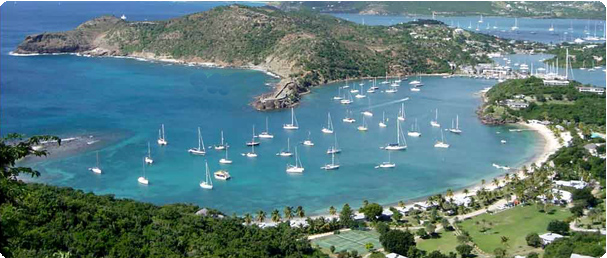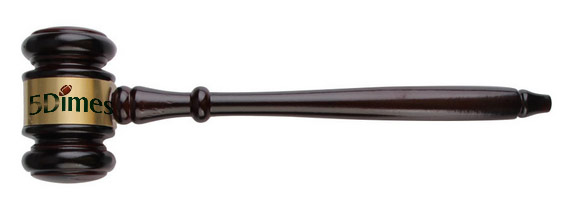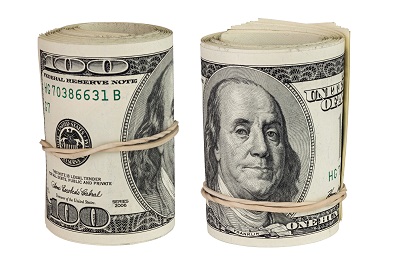Moral argument against gambling goes out the door when big money is involved
There's an old joke where a rich man asks a pretty single woman if she would have sex with him for a million dollars.
"For a million dollars? Sure," the woman answers.
"How about for $5?", the man replies.
The woman gets angry and says, "For $5, what kind of woman do you think I am?"
The man answers, "We already determined what you are, now we're just negotiating the price."
In the late 1990s, World Sports Exchange and other operators on the tiny Caribbean island of Antigua convinced the Antiguan government to take the United States government to the World Trade Organization (WTO) courts and demand that the U.S. open its market to offshore gambling operators. The Antiguan lawyers argued that the U.S. were required to open their markets to all gambling operators within the WTO as part of the GATS agreement. The lawyers said when they signed the agreement the U.S. did not exclude gambling under the agreement, even though they had the chance to, and thus were required to live up to their commitment. The U.S. trade representatives said that was an error and they meant to exclude it since remote and offshore gambling goes against the country's morals.  Antigua said that argument was ridiculous since the country already had remote gambling and the WTO courts agreed with Antigua and ruled in their favor. The U.S. ignored the ruling and instead of trying to fix it or come to an agreement, they doubled down. The Department of Justice (DoJ) kept issuing arrest warrants to Antiguan (and other) gambling site managers and told the U.S. banks to stop processing a variety of transactions from Antiguan banks, which effectively made it impossible for Antiguan companies to continue operating normally. As a result, many of the best sportsbooks and online casinos in the world located in Antigua were forced to shut down, since they could not legally process payments and what was once a thriving economy became a shell of itself.
Antigua said that argument was ridiculous since the country already had remote gambling and the WTO courts agreed with Antigua and ruled in their favor. The U.S. ignored the ruling and instead of trying to fix it or come to an agreement, they doubled down. The Department of Justice (DoJ) kept issuing arrest warrants to Antiguan (and other) gambling site managers and told the U.S. banks to stop processing a variety of transactions from Antiguan banks, which effectively made it impossible for Antiguan companies to continue operating normally. As a result, many of the best sportsbooks and online casinos in the world located in Antigua were forced to shut down, since they could not legally process payments and what was once a thriving economy became a shell of itself.
The United States continued to contend throughout the process, and for years after that initial ruling by the WTO, that the courts were wrong and the U.S. had every right to ignore it, since it opposed their morals. But the U.S. actions since 2006 bring that into question, since repeatedly America seemed ready to cede their morals for the right price.
Pay to Play
The first action took place in 2007 when the United States arrested NETeller founders Stephen Lawrence and John Lefevre for violating the Wire Act. NETeller in response cut off the U.S. market, effectively fired the founders and then pleaded with the U.S. government for forgiveness. The U.S. government agreed to let the company off the hook in exchange for the return of money in accounts of U.S. players, plus a $136 million fine paid to Uncle Sam. NETeller was not required to admit wrongdoing, which was crucial since it did not hold them responsible for their actions, and consequently they have become a major gambling e-Wallet solution in New Jersey.
The second action that had many questioning the morals excuse took place in 2009 when Party Gaming agreed to pay $105 million to U.S. coffers in exchange for forgiving their U.S. presence prior to the passage of the Unlawful Internet Gaming Enforcement Act (UIGEA). In the agreement PartyGaming admitted no wrongdoing and it paved the way for Bwin.Party to enter the U.S. market with partner BetMGM. And the third action took place when the government came to an agreement to settle with PokerStars for $731 million. That price entailed a $547 million fine paid to government coffers and agreement to buy FullTilt poker and pay off $184 million owed to U.S. players from FullTilt, even though FullTilt offered PokerStars no value whatsoever. Full Tilt went off the rails after that company could not pay back players when the U.S. government called them a Ponzi scheme, shut down the website and cut off all access to their accounts. Once again PokerStars admitted to no wrongdoing and has been operating in New Jersey and Delaware and plans to expand elsewhere. Ironically, it was Tribes in California and a few states that have sought to block PokerStars from operating for at least 5 years if ever for illegally operating in the States prior to the 2011 Black Friday website seizures. There have been some suggestions of paying off tribes that PokerStars does not have a partnership with, in exchange for waving the "bad actor" clause, but that has fallen on deaf ears. One tribal spokesman told me a few years ago when I asked about it "with all the sacrifices we have made to get where we are, you have to earn respect and honor. You can't buy it by throwing trinkets at us." It seems that unlike the U.S. government, many tribal leaders and states believe that that you can't just give up your beliefs or morals for money.
And the third action took place when the government came to an agreement to settle with PokerStars for $731 million. That price entailed a $547 million fine paid to government coffers and agreement to buy FullTilt poker and pay off $184 million owed to U.S. players from FullTilt, even though FullTilt offered PokerStars no value whatsoever. Full Tilt went off the rails after that company could not pay back players when the U.S. government called them a Ponzi scheme, shut down the website and cut off all access to their accounts. Once again PokerStars admitted to no wrongdoing and has been operating in New Jersey and Delaware and plans to expand elsewhere. Ironically, it was Tribes in California and a few states that have sought to block PokerStars from operating for at least 5 years if ever for illegally operating in the States prior to the 2011 Black Friday website seizures. There have been some suggestions of paying off tribes that PokerStars does not have a partnership with, in exchange for waving the "bad actor" clause, but that has fallen on deaf ears. One tribal spokesman told me a few years ago when I asked about it "with all the sacrifices we have made to get where we are, you have to earn respect and honor. You can't buy it by throwing trinkets at us." It seems that unlike the U.S. government, many tribal leaders and states believe that that you can't just give up your beliefs or morals for money.
Many analysts will suggest, however, that each of those situations listed was unique, so perhaps the United States government could be justified for their decision to reward forgiveness and access to the U.S. market for a price. NETeller, after all, is a payment processor and never took bets from U.S. citizens. Party Poker and PokerStars are poker websites and it is still unclear whether poker is a game of skill and legal under the UIGEA and Wire Act, so this could be forgiven as well. But earlier this month the U.S. government appears to have had a change of heart regarding offshore companies that take bets from its citizens.
5Dimes situation - a game changer?
The DoJ decided to settle with Laura Varela, the widow of Sean Creighton, who was the main owner of the website 5Dimes, based in Costa Rica, and who was killed in a botched kidnapping attempt in 2018. 5Dimes was being investigated by the government for wire fraud, money laundering and illegal transmission of gambling information and the U.S. government forgave it all in exchange for $46.8 million.  Varela indicated that with that settlement she will be seeking to start legal operations in New Jersey and apparently the U.S. Attorney's office will help in the process. If this indeed turns out to be accurate and Varela is allowed to operate in the United States, then the U.S. government must admit once and for all that their objections to offshore and remote gambling had nothing to with morals and was strictly about money.
Varela indicated that with that settlement she will be seeking to start legal operations in New Jersey and apparently the U.S. Attorney's office will help in the process. If this indeed turns out to be accurate and Varela is allowed to operate in the United States, then the U.S. government must admit once and for all that their objections to offshore and remote gambling had nothing to with morals and was strictly about money.
Let's be honest, while 5Dimes is a great website and sportsbook, there is no doubt that they flaunted the rules and effectively gave the middle finger to Uncle Sam in the process. When many websites cut off American customers around the time of the passing of the UIGEA, 5Dimes continued to cater to U.S. customers and advertised heavily. They were the first sportsbook to accept bitcoin as payment to get around U.S. payment processing issues and even set up their own bitcoin exchange to handle the enormous amount of payments for its million customers (not all U.S. customers). And for those not willing to use bitcoin, they offered credit card payments using foreign companies unrelated to gambling to hide the nature of the transactions from banks. It was not uncommon for 5Dimes customers to see a charge on their credit card for a bookstore located in China as an example. And withdrawals not made by bitcoin were issued from worldwide banks, sometimes in countries like Cyprus.
Laura Varela and her lawyers said that she was never involved in the operations of 5Dimes so she should not be held responsible for the company’s past actions and while there is no reason to believe that Varela is not being honest in that regard, why should that matter? The product that wants to be operating in New Jersey operated illegally and catered to U.S. customers only a few months ago. Amaya’s purchase of PokerStars did not absolve them of the past wrongs and this should not be any different.
What's the Price?
Nevertheless, assuming 5Dimes is given complete absolution and can operate stateside, then we have to say to the government that they are no different than the woman in the joke and the only question is what is the price? It is well known that companies like Pinnacle Sports would love to return to the U.S. market and better yet, operate legally in the U.S. physically, but what's the cost? They have a great structure and customer base and are sought by many of the biggest and best sports gamblers in the world due to their low vig structure, but how much do they have to pay off Uncle Sam for that opportunity to operate in the U.S.? Intertops also has a great history and operation model and no doubt would love a legal U.S. based sportsbook, but how much would it cost them to operate legally in the U.S.? And what about The Greek?  Always rated as a top sportsbook thanks to their structure, customer service and betting options, they closed down in May 2019, a few years after they left the U.S. market because unfortunately, they were never able to get enough volume in the rest of the world to make the sportsbook viable. With U.S. customers legally betting there, The Greek may again be viable. But for its former owners to consider restarting the operation they first need to know the price. Would say $10 million be enough of a payoff to satisfy the government? How about $20 mil? There is a price there somewhere because the U.S. government has proven that they only care about morals when it suits them.
Always rated as a top sportsbook thanks to their structure, customer service and betting options, they closed down in May 2019, a few years after they left the U.S. market because unfortunately, they were never able to get enough volume in the rest of the world to make the sportsbook viable. With U.S. customers legally betting there, The Greek may again be viable. But for its former owners to consider restarting the operation they first need to know the price. Would say $10 million be enough of a payoff to satisfy the government? How about $20 mil? There is a price there somewhere because the U.S. government has proven that they only care about morals when it suits them.
Don't get me wrong, I harbor no resentment towards PokerStars, Party Gaming, NETeller or even 5Dimes, but I hate hypocrisy. The government used a morals argument to effectively ruin a great country and defeat a gambling economy they helped create, as well as great sportsbooks like World Sports Exchange, World Wide Telesports (WWTS) and CaribSports, and made it unfathomable for companies like The Greek to continue operating, when in fact they never had an issue with the morality of remote or offshore gambling. The government simply wanted to bully companies on their way to large payday and as the Tribal spokesman said to me, "you have to earn honor and respect." It shouldn't simply be sold to the highest bidder.
Read insights from Hartley Henderson every week here at OSGA and check out Hartley's RUMOR MILL!








































